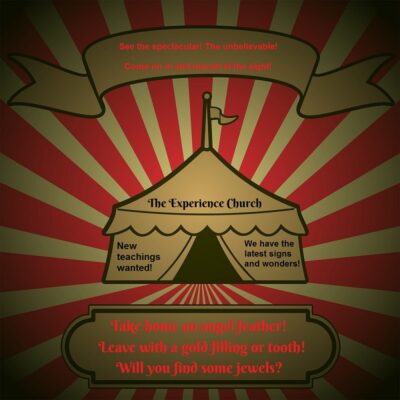Original post here. Continued from Three Steps Part 1: Recollection, Remembrance, and Discovery. This took place between the late 1960s – early 1970s.
The church that I was brought up in no longer exists. The buildings still stand, I could lead you inside and give you detailed tours. They still have the same name, and are still used by an entity that calls itself Southern Baptist. But how they define themselves is completely different. The Southern Baptist Church I grew up in was proudly liberal. At that time God was thought to be too big for the human mind to define, and any attempt to limit God’s nature beyond the broad outlines set out by Jesus was thought to be dubious. The important part of the Bible was the Gospel, everything else was just there to provide context. Homosexuality was not an issue. Abortion was a medical procedure that was best avoided, but sometimes necessary. My husband remembers a local Southern Baptist church holding a divorce ceremony for a couple who had married there. I remember my church kindergarten teachers using a crystal ball in class. And a book written at the time by a woman Southern Baptist theologian celebrated the ordination of women, which was just around the corner.
We never turned that corner. We turned back instead. But how did we reach that enlightened position in the first place?
I was taught in church that the bedrock foundation of our Southern Baptist faith was “soul competency.” God created everything, including each and every one of us, and gave each and every one of us the ability, the permission, and the responsibility to develop a personal and unique relationship with God based on both our personal experience and our own reading and interpretation of the Bible. God would hold each of us personally accountable for our actions when we met Him before the Throne, and we better be ready. There would be no one else to hide behind, and we couldn’t use anyone else’s interpretation as a shield to cover our theological nakedness. However, the same God that made us also made us competent to do the job. We were God’s children, and we were up to this task.
Soul competency was popularized in the Southern Baptist faith by E.Y. Mullins in 1908. Here is the Reverend John Dee explaining it:
To me it means that the individual Christian is unassailable in her interpretation of Scripture and in her own understanding of God’s will for her life. It means that when someone says, “This is what the Bible means to me,” I cannot tell her she is wrong. I can merely say that her understanding is meaningless for me. Only the preacher’s understanding of Scripture is expected to be generally meaningful for the whole community, and it is up to each individual to decide whether the preachers’ words are useful or not. Soul competency means to me that anything I understand to bring me closer to God is true and cannot be taken away from me, because my life is unique and there is a way of understanding Scripture which is unique to me. Soul competency means to me that I find truth when I am furthest removed from distractions and contingencies of people and things and authorities- again, when truth takes forms which are unique to me and my understanding of the Bible.
In his book The American Religion, Harold Bloom argues that this belief in soul competency aligns the Old School Southern Baptists with the earliest Christians, the Gnostics, in their belief that the close, personal relationship with God is inviolable. As a young mystic who already had a close, personal relationship with God, I had no problems with that at the time or since then.
Soul competency led directly to another core Southern Baptist belief, the priesthood of the believer. All who believed in God stood equally before God. Some might be more learned or more gifted, but no one stood higher than any other. In practice this meant that as long as you founded your beliefs on your understanding of the Bible, no other Christian could tell you that you were wrong.
As competent priests who took charge of our own souls, there was one doctrine we were strongly against — predestination. Our fate, like our relationship with God, was subject to change at our own hands depending on what we did. If we didn’t like our fate, we could walk with God and talk with God and take it up with God directly. And then we could go out in the world and do something about it. Calvinist predestination was roundly mocked as foolishness.
The great virtue of soul competency is that it inoculates against atheism. If you are taught that the Bible is the only place where one looks for God, then when you realize the Bible is a collection of old books of questionable value in today’s world you have no fallback position and become a skeptic by default. If there is another place where you are taught to look for God the break is not as traumatic.
But how did this play out in my head? Well, here’s an example. The year must have been about 1972. I was around six or seven, and my family was attending Sunday Service at Bowmar Baptist Church in Vicksburg, MS. The preacher was telling the story of Moses, and how as a youth Moses had killed another man in a fit of rage. The preacher said that the young man thought he was alone, but God was there. It got me to thinking: was God also young at that time? It would fit, the God of the Old Testament was certainly more hot-tempered and less mature than the God of the New Testament. Perhaps the entire Bible could be read as God’s coming-of-age story, as He grew into a more responsible deity. I hadn’t heard anyone mention that idea before, and I knew some would object to it. But I was just as competent to interpret the Bible as they were. I would hold on to that thought until I was old enough to discuss it with other believers in a thoughtful, non-judgmental place.
I never found that place in the Southern Baptist church. By the time I was old enough to discuss theology they had changed beyond recognition. I was able to eventually find a thoughtful non-judgmental place to discuss theology with other worshipers, but that would have to wait many decades until I found the Unitarian Universalist Church.
*************************
There was one other thing we learned in church. This being the ’60s and early ’70s we all got a good dose of anti-communism. It was considered your patriotic duty to preach anti-communism everywhere, including the pulpit. We were taught that communism was evil for three reasons:
1) Communists told people what they had to believe, instead of letting people make up their own minds,
2) Communists punished people who questioned them and did not believe what they were told to believe, and
3) Communists rewrote their own history to erase any evidence that disagreed with them. That one seriously freaked me out as an adopted child, probably because it had been done to me personally. (Although why it was acceptable when done to me and not acceptable when done by communists was a question I never found the nerve to ask.)
Keep those three things in the back of your mind; we’ll return to them later.
Three Steps Out the Church Door: Leaving the Southern Baptist Church – Introduction
********
Shop at our Amazon store! As an Amazon Influencer, this website earns from qualifying purchases.












